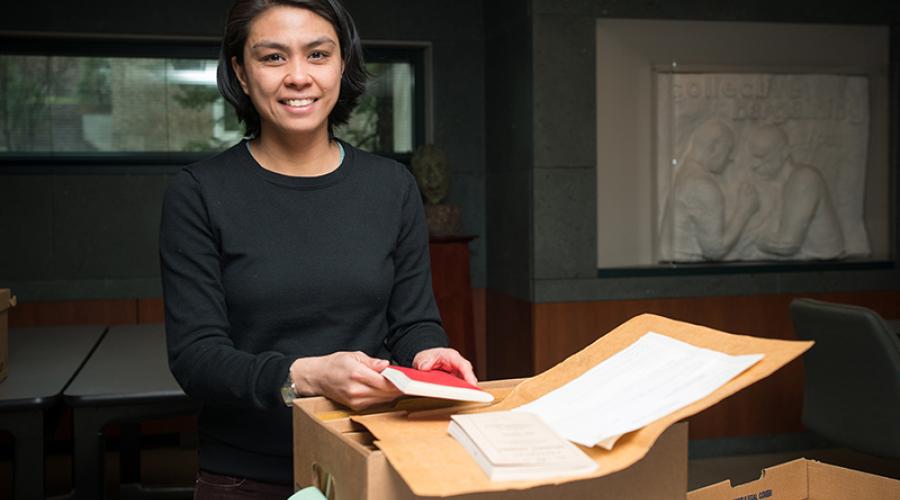
Wealth of History
You might not expect that a project digitizing 100 years of labor-management agreements would shed light on societal trends, increase scholarship or encourage institutions to pursue similar projects.
But, the recently completed “Cornerstones in American Middle Class: Historical Collective Bargaining Agreements Project” at Cornell University Library’s Kheel Center for Labor-Management Documentation and Archives did just that.
The initiative, funded with an $83,801 federal grant from the National Historical Publications and Records Commission, put labor contracts from the 1880s to the 1980s online at http://digitalcommons.ilr.cornell.edu/blscontracts2/.
A number of the agreements are focused on New York City education and retail pacts affecting teachers, university staff and those who worked for retailers such as Kosher Meat Markets of New York, Crawford Clothing and East Bay Motor Car Dealers Association. On the education side, contracts include those with schoolteachers, university staff and others working in education.
Work began in July 2014 and was completed in December, said Cheryl Beredo, director of the Kheel Center, part of Catherwood Library, located in the ILR School.
The contracts include 1,982 retail and 836 educational agreements from around the United States.
“The project has been exciting for us,” Beredo said. “We knew we had this rich resource in collective bargaining agreements. And, we knew when they’re online and people have free access, they get really high usage. We were confident researchers would use them.”
Kheel Center Digital Archivist Barbara Morley said researchers are using them in much higher numbers now -- both in print and online -- than before the digitization project.
The Kheel Center has an estimated 125,000 collective bargaining agreements from the U.S. Department of Labor, and during the 10 years before the project, the print versions were used 120 times.
From December 2014, when the first batch of newly digitized contracts was uploaded, to March 20 this year, the contracts have been used 18,889 times, Morley said.
The contracts provide a wealth of historical information beyond wages and hours, she said. They include information about how a family is defined, whether alcoholism is viewed as a public health issue or a character defect, and some of the impacts of immigrants on the workplace.
“We can see changes in the way social trends and business trends are enacted over periods of time in an industry, or in a region of the country,” Morley said. Having the information online encourages researchers to perform computational analyses more than could have been done with documents on paper.
The archivists are also digitizing oral histories from the International Ladies’ Garment Workers’ Union and the Service Employees International Union Local 1199 Hospital and Health Care Employees’ Union.
The project has encouraged other institutions to explore similar projects, Beredo said. “We made a website that outlines how we did what we did and other things we’ve learned, how we’ve tweaked what we did.”
“It raised the profile of the humble contract.”


